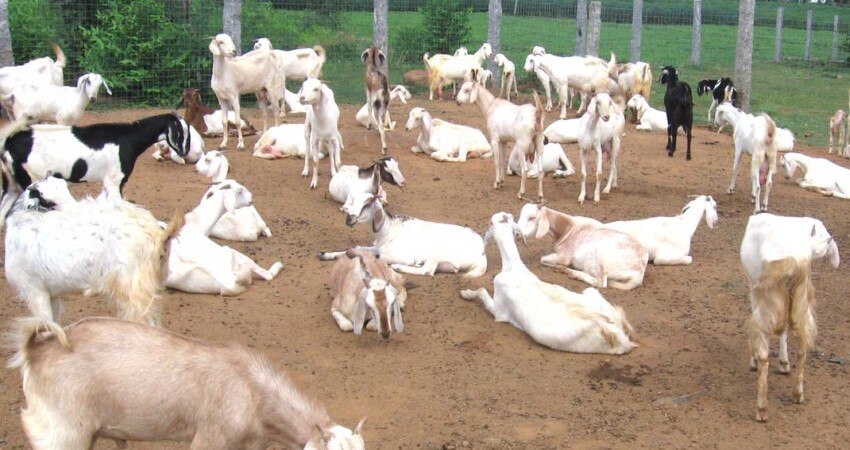

Reproductive failure can be defined as either sterility or infertility. Sterility occurs when there is a permanent problem preventing kid production, while infertility, or temporary sterility, is the inability to produce live young within a specific time period. There are a number of factors that can cause reproductive failure including physiological, toxicological and psychological factors.
Physiological Factors
Reproductive failure can result when hormones are not produced in the correct amount or in the right pattern or if no egg is produced and released from the ovary. Ovaries can become cystic (both follicular and luteal, so either before or after ovulation). In does with follicular cysts, which are rare, the follicle with the egg grows but there is failure of ovulation, or release of the egg. This type of cyst usually results in females that are always in heat. This may be related to problems with the hormone that causes ovulation known as luteinizing hormone. Even though this type of cyst is hard to treat, large doses of LH/hCG or GnRH followed by a dose of prostaglandin 10-14 days later, might be effective. See your veterinarian for use of drugs not labeled for goats.
Psychological factors
In addition, there can be causes of reproduction problems that are inherited (passed on from parents). For example, females might have malformed reproductive tracts like incomplete oviducts, an abnormal uterus or a blind cervix or vagina. These problems may not detected without slaughter because the female may cycle (come in heat) regularly, but cannot get pregnant. Males may also have inherited abnormal problems as well.
More problems with reproductive anatomy might be the case of hermaphrodites. They are usually classified as true hermaphrodites or pseudohermaphrodytes. The true hermaphrodite will have both male and female reproductive gonads (ovaries and testis) while a pseudohermaphrodite will have either testis or ovaries, but have other parts representing both male and female.
Toxicology factors
When feeds get wet/damp, molds can grow and produce toxins, or mycotoxins, that can lead to reproductive problems and failure. Aspergillus, Fusarium and Penicillium are the most common toxins causing problems in stored feeds. In addition, there are molds and endophytes in forages that can also cause problems. Fescue toxicosis can results from endophyte (fungal)-infected tall fescue that make toxins such as ergot alkaloids, primarily ergovaline, that can delay onset of puberty, impair luteal function to result in reproductive failure, decrease milk production or fetal birth weights and cause longer than normal pregnancies. Cotton seeds, roots and leaves have a natural compound called gossypol that can cause a problem, mostly if producers feed whole cottonseed. Gossy.pol can cause delayed puberty in young animals due to decreased growth. It can also cause problems with sperm production in males.
 Contact Jaguza Support
Contact Jaguza Support